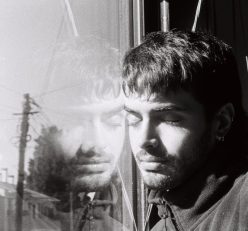What is my research interest for this project?
- acoustemology
- politics of the voice
- music and conflict
- ethnographic methodologies review.
Mark Peter
He’s interested in the relationship between humans, animals, and technology and the power in that triad. Also interested in pedagogy – figure stuff out together. He works within different media: installation, performance and radio. Listening After Nature: Field Recording, Ecology, Critical Practice is his upcoming book.
Questions for the class:
- What artistic histories might your sound work connect with
- How will narrative function
- How will voice function
- What type of editing does your content demand
- Where are you at work?
Analysis of Hildegard Westerkamp work Kitts Beach Soundwalk
- voice is the command of a change in the piece
- playing with truth and fiction
- “recording sound is subjective” Westerkamp.
- Poetic doc.
Analysis of Glenn Gould Contrapuntal Radio/Editing
- polyphony of voice as an editing technique
What type of audio editor am I?
- I don’t know
Analysis of Irv Tiebel’s The Altered Nixon Speech
- Cut up/Truth/Fiction
- “When you cut into the present, the future leaks out.”
- hubristic
Maria Chavez: Live/Performance
James Benning: no editing at all
The Noisy-Nonself or I, the Thing in the Margins by Mark Peter Right
http://markpeterwright.net/the-noisynonself-or-i-the-thing-in-the-margins
Sonic Journalism
- Based on the idea that all sound, including non-speech, gives information about places and events. This does not exclude speech but redresses the balance towards the relevance of other sounds. Listening provides valuable insights in different forms but is complementary to visual images and language.
https://sounds-from-dangerous-places.org/sonic-journalism/
- who’s currently recording the war in Ukraine?
- Syma Tariq: sonic journalism but with archive
Listening Protocol: Editing Interviews and Environments for Broadcast.

